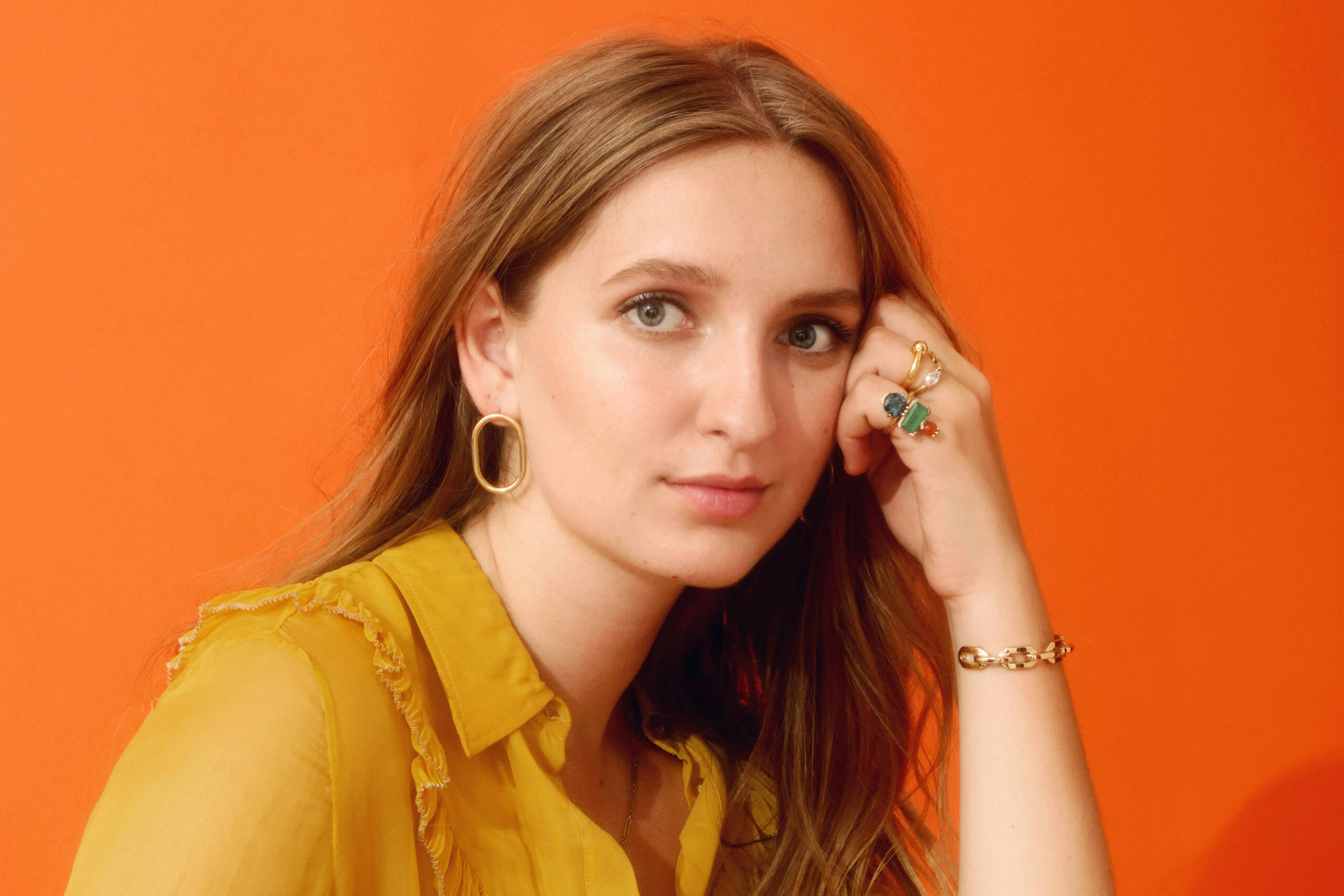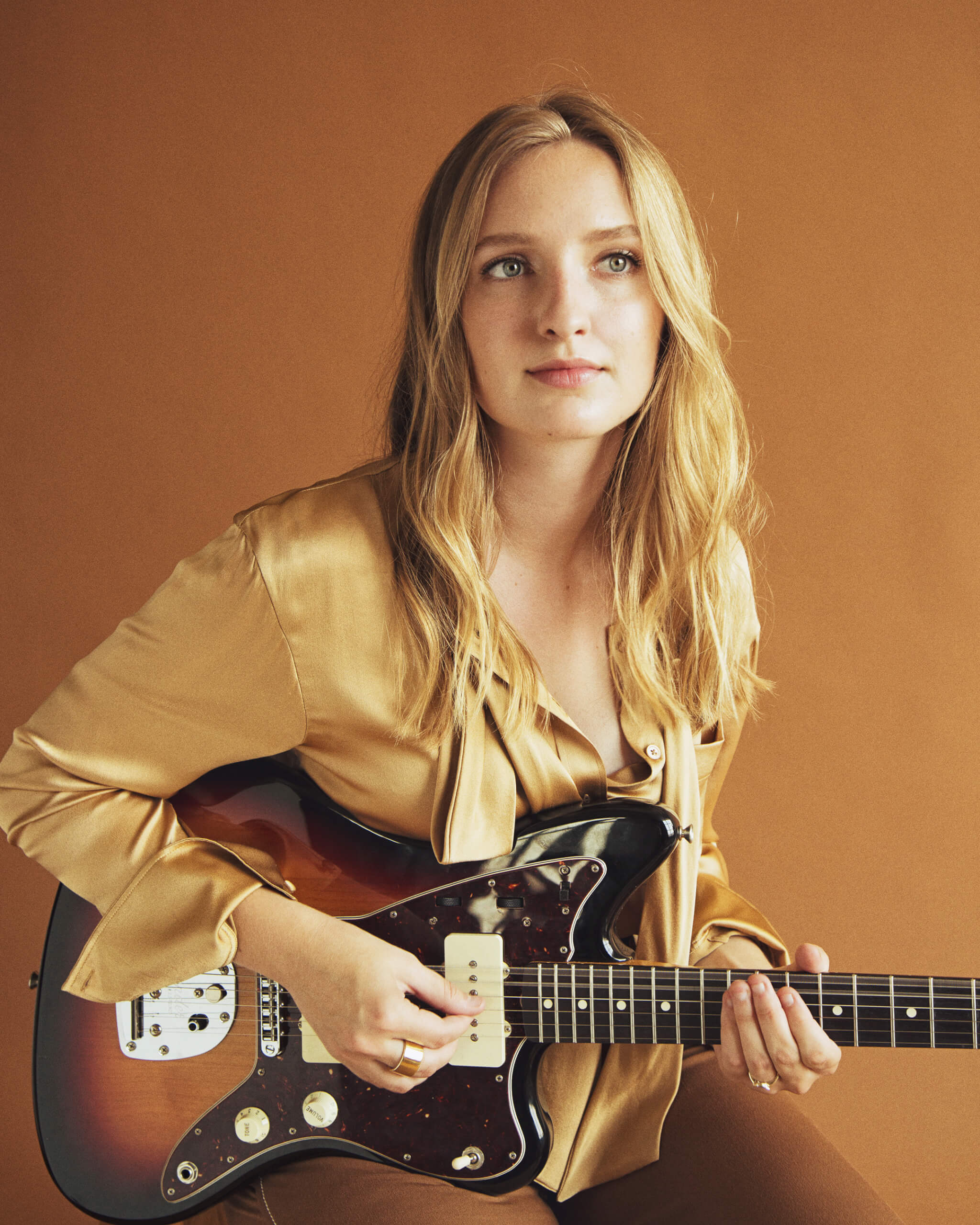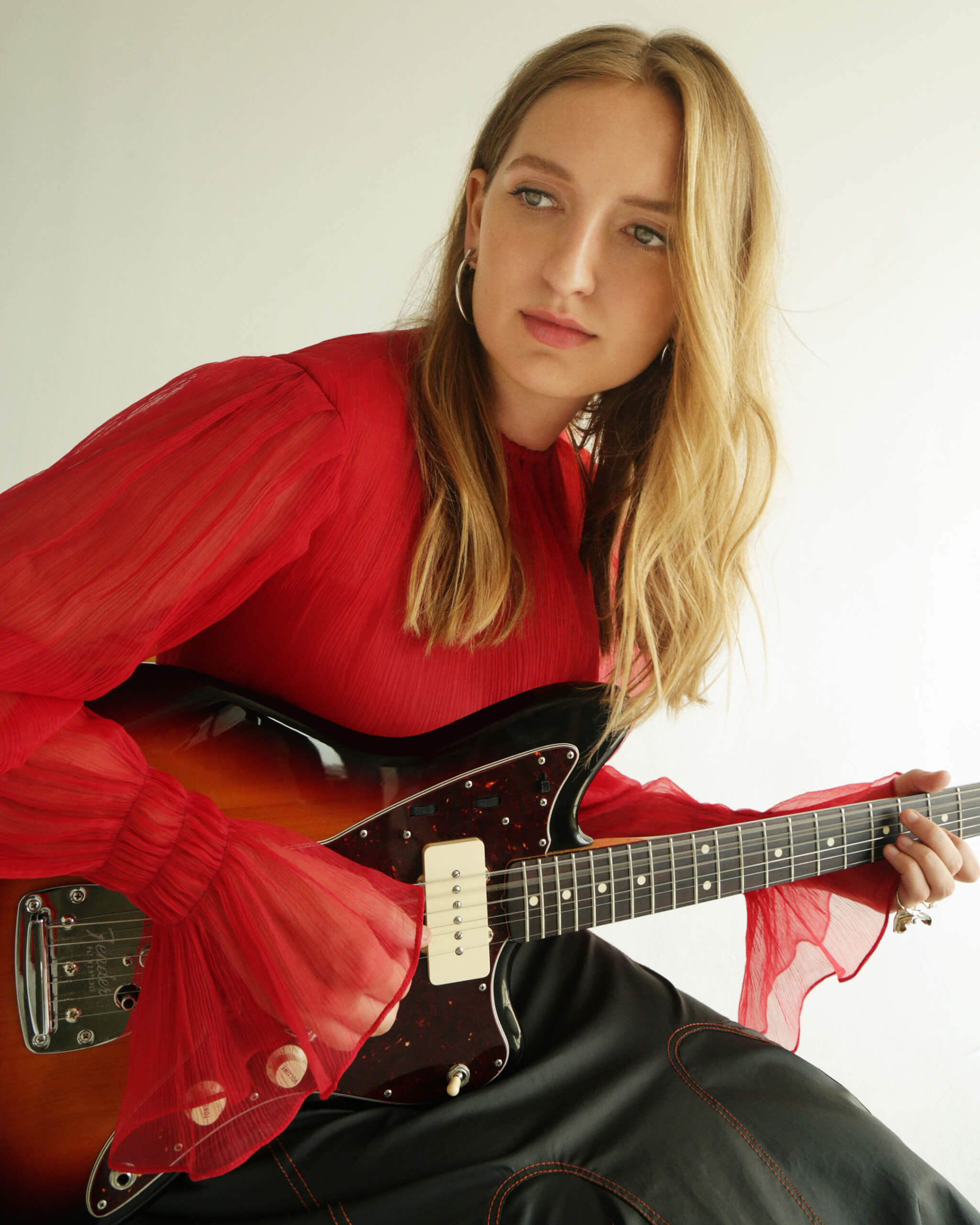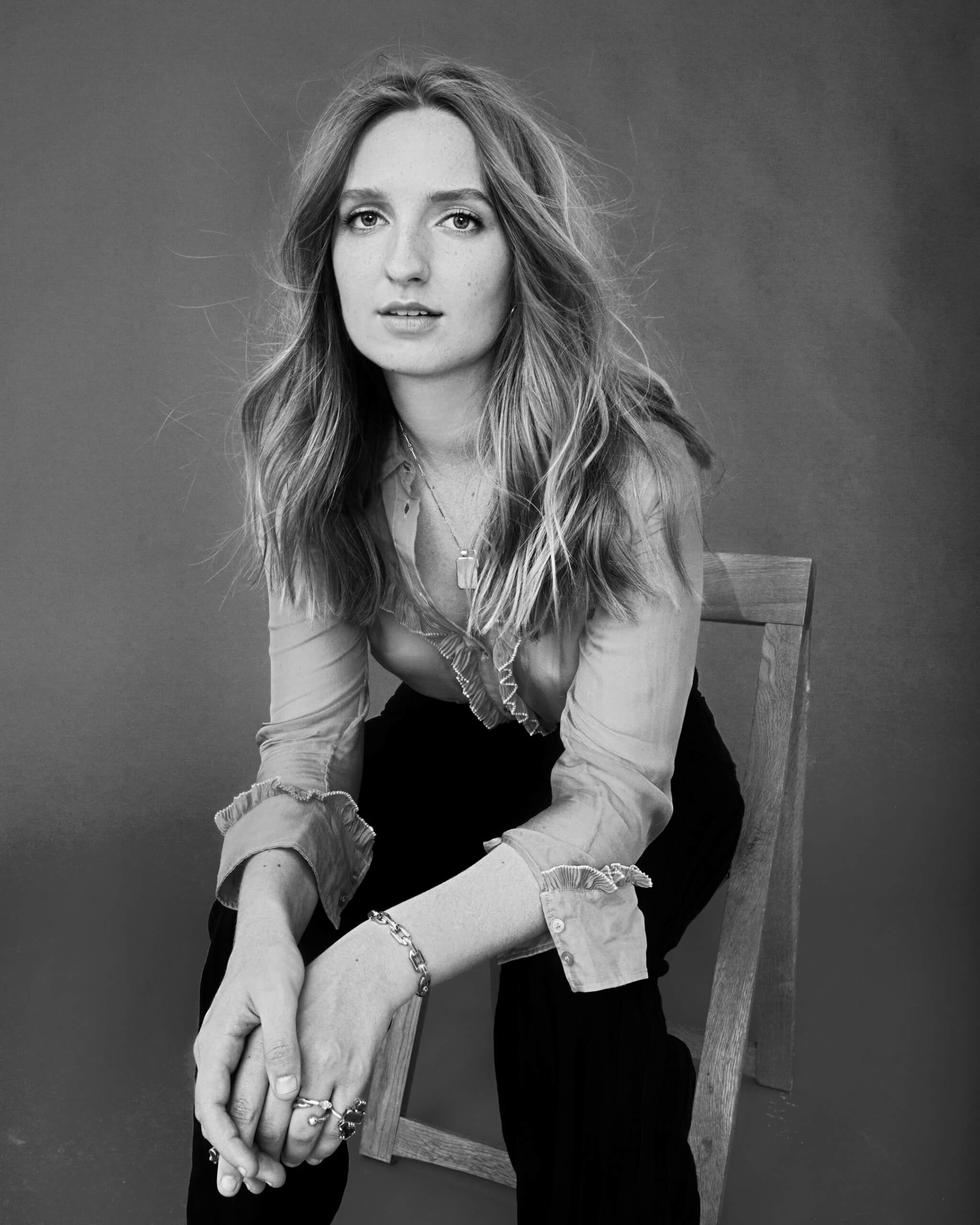Introducing… Madison Cunningham, the Jazzmaster-playing songwriter putting her stamp on modern Americana
The Californian songwriter’s stunning major label debut has set her on the course for very big things.

All images: Claire Marie Vogel
What were you doing when you were 23? It probably wasn’t making a Grammy-nominated album, but then Madison Cunningham isn’t your average twenty-something. The Costa Mesa native might just have that album, Who Are You Now and her 2014 indie debut Authenticity under her belt so far, but the now-24-year-old’s star was on the rise long before she received a nod for Best Americana Album from the Academy back in January. She played the iconic Newport Folk Festival last year, and no less than John Mayer has heaped praise on Cunningham’s intricate jazz-inflected guitar work, which pulls inspiration from Bob Dylan and Joni Mitchell one minute, Jeff Buckley the next.
But despite all this, the Grammy nod was very much out of the blue. “It was completely unexpected!” Cunningham explains from her home in Los Angeles in late April. “A lot of people had been stressing to me, ‘Your debut record on a major label is a big statement, it’s your first impression, and you have to figure out what you want that to be’.
“And I think I put a lot of pressure on myself to figure that out. I was more like, ‘I’ve really got to dig deeper and figure out what the heck actually want to say with my songwriting voice’. Because that’s a big deal.
“I think in some ways, all the pressure that I had felt up into the moment of releasing the record… the Grammy nomination maybe served as alleviation of that. I was like, ‘Oh, what we did and what we worked for was a good thing!’. That’s not to say that the Grammys are the final word on what’s good and what’s not, but it changed things in the sense that I didn’t think that the Academy would notice a record like this.”
“I really liked playing with pedals and experiencing the power of turning on an amp”
Garage band
Notice they certainly did, and it’s not hard to understand why – Cunningham is a rare talent who combines inventive and at times exhilarating guitar playing with old-soul vocals and incisive and original songwriting. But the current acclaim she’s starting to enjoy is the culmination of a lifetime’s obsession with playing guitar, though the precise start-point remains a bone of contention…
“My dad would say that I started writing songs when I was around four, but I have heard those songs, and I beg to differ!” Cunningham laughs. “My dad was a guitar player actually, and seeing the way he loved it made it exciting. He had a full-time job – he was a worship leader at a church – but when he would come home all he wanted to do was play. He kept his electric guitar almost hidden in the garage, but I was home-schooled, so while he was gone I would sneak in there! I really liked playing with pedals and experiencing the power of turning on an amp – it was so fun to me.”
Despite her initial infatuation with plugging in, after six years of strumming an acoustic, Cunningham found the initial transition to being an electric player around the age of 13 something of a struggle, until she began to appreciate the beauty in difference.
“The thing that really clicked in my head was that realisation that there were two very different approaches to playing those two instruments,” she explains. “And then the differences between them became established in my head in the same way you would differentiate between a viola and a cello – it felt like I was learning an instrument all over again.

“I went through a period of feeling a little insecure because I was just strumming on an acoustic – I wasn’t really fingerpicking or doing much of that – so it felt like, ‘Oh, I need to brush up in order to not sound totally annoying on this amplified instrument!’ So I don’t think I felt quite at home with it right away – it felt like sitting behind the wheel of a really powerful car and being like, ‘I don’t know if this is the right look on me, or if I should even be driving a Ferrari!’
“So it took me a minute to figure it out and find my own voice. Because the way I knew the electric guitar was just basically blues, which is incredible… but I also felt intimidated by that. I was excited, but also intimidated as a songwriter by the challenge of trying to figure out how all of those worlds meshed. I think that created a very quirky sideways way of me coming into it – just making mistakes and calling them songs!”
In the woodshed
Listening to Cunningham’s playing – which effortlessly fuses jazzy lead lines, bluesy riffs, altered tunings and towering picked arpeggios drenched in vintage tremolo and reverb – you’d be forgiven to thinking this broad style was borne of years of tutored study, but in fact, it sprung from very little formal training, occasional fatherly advice, and total devotion to her instrument.
“I was just obsessed with it,” she says. “I would just sit in that little corner of the house for hours and just figure things out. My dad taught me my first seven chords. It became a really cool relationship because I started to go into areas that he’d maybe never gone before. And Danny Donnelly, who was one of my dad’s really close friends – he was the first person I ever heard talk about the pentatonic scale, open tunings and all that. He maybe gave me one lesson, but for the most part, I’ve just been self-taught. I grew up driving out to LA and watching some of the greats play, and I think in a subconscious way they were also my teachers, just by hearing and watching the way they held and played their instruments.”
“Electric guitar felt like sitting behind the wheel of a powerful car and being like, ‘I don’t know if this is the right look on me’”
The real lightbulb moment, however, came when she discovered the Adam Levy: the LA jazz guitarist whose understated playing formed a beguiling counterpoint to Norah Jones across her mega-platinum album run in the first decade of the 2000s.
“He’s still in LA, and continues to just be one of the most fluid and incredible guitar players,” Cunningham explains. “His playing sounds like a voice more than it does five fingers, and that cracked my head open in terms of, ‘Oh there are other ways to play guitar’. I’d been in my own box of trying to grab on to whatever I could and finding a way to be a guitar player – like I said, trying not to be annoying!
“I was amazed at how little he played and how much he said in that restraint, and that changed my perspective. Because I think when you’re young, you want to be impressive? And you think the only way to be impressive is with quantity – how many notes can I play? How can I sound like I am, for a lack of a better word, a shredder? But watching him, there was so much humility and grace in his playing and it got to me so much more than anything else had until that point.
“I started taking major cues from that and figuring out how I could pull back on some areas, so that I could say something that was maybe important, rather than impressive. I think there’s a difference and that’s not to say that I have found a way to say something important, but I feel like I’m always struggling and wanting to say something like that, something different.”
Stepping out
As someone whose day job was getting up in front of a congregation and playing music, it didn’t take long for Madison’s father to recognise her talent, but as an introverted teenager wary of trying anything beyond writing songs in her room, she needed a little push.
“I was fortunate enough to have people around me who pushed me to get outside of my comfort zone,” she recalls. “He had me sing with him at church, which was kind of my first experience of being in front of an audience and being in front of people.”
Singing with her dad and her five sisters gave Cunningham a taste for live performance, but the lights of that nearby metropolis soon drew her in.
“By the time I was 17 I knew I wanted to play my own music outside of church, and I wanted to go to LA,” Madison says. “That was the pipe dream. I wanted to go to a club and play there, or play a bar where no one’s listening… I wanted all of that, and it all seemed very romantic to me. But I was really nervous and really, really introverted, and I don’t know if I would have ever done it unless someone had set it up and been like, ‘You should do this. Come on, it’s gonna be okay!’”
“I wanted to go to LA. I wanted to go to a club and play there, or play a bar where no one’s listening… I wanted all of that, and it all seemed very romantic to me”
Meeting musician and producer Tyler Chester – who has worked with the likes of Margaret Glaspy, Switchfoot and Andrew Bird, and has produced every record Madison has made since – when she was 18 would be the catalyst for her LA dream. Tyler helped get Cunningham her first LA gig at Largo, the iconic comedy and music venue in Hollywood that has played host to Elliot Smith, Larry David, Ben Folds, Jack Black and scores of others over its 30-year existence.
“As a musician, to watch a comedian try out their new bits is really mind-blowing,” she recalls of her first time at the theatre. “It’s hard to imagine ever trying to make people laugh for a living – it looks so hard! But it creates a really cool merging of worlds inside the LA artistic community. After that night, I started to play a lot at Largo and around town – it was a special time and I miss it.”
Going from suburban church audiences to a super-hip LA cabaret crowd must have been quite the culture shock though, surely? Well, perhaps not so much…
“I realised that the response is different from the audience, but as the person on stage it has to be a similar kind of deal,” she affirms. “It has to be like giving up yourself and making it not about you, so that the performance can serve its best purpose. So I’ve taken what I’ve known from church culture and tried to apply that into the shows, because it just frees me up, and it also makes me feel more relaxed when there’s a sense of, ‘Oh, this isn’t all about me. Music is the greater purpose here right now’ – it’s relieving.”

The off set
Pushing play on Who Are You Now, it’s impossible to not be drawn in by the syncopated groove of opening track Pin It Down, it’s an impressive statement of intent, but one that came to the party quite late.
“That was a song that came last, and I thought that was a song I was searching for the whole time,” Madison explains. “It just had the elements that made me feel like, ‘Okay, this is what I want to be as a musician’ – how I want to incorporate melody and how I want to incorporate guitar.”
Key to the groove are the woody, just breaking up tones of her Fender Classic Player Jazzmaster – a humble guitar to make a Grammy-nominated record on, but a guitar that she can’t seem to put down.
“I just prefer my Mexican Jazzmaster out of the three I have, for some reason,” she explains. “It might be a sentimental thing because that was the first one that I ever had, but it just doesn’t feel as ‘new’ as the other ones. Also, my white American Vintage Jazzmaster needs a little work, because it buzzes out – it might be that I’ve put too much pressure on it from detuning it so many times, so that might be on me! But the Mexican one feels warmer, yet it can be brighter when it needs to be – it just feels very well-rounded.
“Jazzmasters hold low tunings well, so given the way that I’ve been writing songs – with open tunings and lowered tunings – I’ve stuck with Jazzmasters,” she continues. “I had started using open tunings on acoustic but when I tried it on electric, something clicked. I don’t think it had occurred to me that I could do that for some reason – maybe it was a moment of boredom or just wanting to try something new. I guess it’s pretty basic and a lot of people had thought of it before, but I was like, ‘Oh, this just has a different sound than it does on acoustic.’”
Another thing that Jazzmasters do with aplomb is adding shimmer and depth to glassy picked arpeggios – as heard to wonderful effect on Something To Believe In, a song that shows hints of one of Cunningham’s most important influences, Jeff Buckley.
“I probably heard Buckley when I was 17 and hilariously enough, I didn’t like it the first time I listened to him!” she admits. “But I’ve found that with all my favourite records, the first time I listened to them, I had a negative reaction. I think he flipped a few things on their heads that I had been familiar with, and that was offensive to me to my ears or something! But then all of a sudden it clicked and I just thought this is the most incredible thing I’ve ever heard.
“It haunted me! Grace was one of those records that ended up melting in my CD player in my car – because I live in California and it’s hot! I played it over and over until it had its final day in the sun one summer.”
Parlour games
When it comes to acoustics, Madison’s primary live and recording guitar remains the Martin that she’s had since the very beginning, but her favourite is something a lot less reliable.
“My number one is probably a guitar that probably shouldn’t be my number one because it’s kind of crappy,” she chuckles. “It’s an old parlour guitar, but I love it – honestly the crappier the acoustic guitar, the more I’m drawn to it. I love the shakiness of it and how the strings are always buzzing… I don’t know, it just has a sound to it, like it’s grungy or something. I think there are a lot of songs in those homely guitars.
When it comes to amps, she again favours the consistency and practicality of modern Fender Deluxe Reverbs and Princetons, but her heart again belongs to something that isn’t exactly road-ready.
“I really love the Gibson Falcon,” she enthuses. “It’s amazing. It’s the only vintage amp I have, and it’s my favourite… but I can’t travel with it, and it’s hard to play live because it’s really low wattage, so it crunches really quickly. I just use it for recording – the tremolo on it is so amazing. I tried using it live once and totally broke it and had to get it fixed, but you live and you learn!”
“the crappier the acoustic guitar, the more I’m drawn to it”
Another interesting quirk of Cunningham’s set-up is her small pedalboard which – which features primarily JHS pedals, including the Panther Cub, Tidewater, and Emperor.
“When we were recording the last record, Tyler reached and asked if JHS would give us just a couple of pedals to explore with,” Madison explains. “They were so generous and they gave us way more than we could have ever needed, but we just tried them all! Then I started talking with Josh and I realised that I’d got really attached to a lot of sounds they were making. So he made me a pedalboard that’s all JHS – really, really versatile, but also small and easy to travel with. All I was really looking for was to have a few tricks, but not have to pack a whole new suitcase!
“I see some people’s boards and they’re half the size of a console, that’s crazy – that must break your back! Travelling with two guitars in one case is enough. And there’s less room for error – if you’ve just got six pedals, there’s not much that can really go wrong with that.”

Home bound
Time at home is traditionally a precious commodity for musicians, but as COVID-19’s gig-postponing effects drag on and on, it’s no wonder that many artists are yearning to get back in front of an audience, and Madison is no exception.
“I really started to miss it this week,” she admits. “It’s hard to imagine that just a couple of weeks ago, I was complaining about travelling and missing home – I take it all back!”
The pandemic has already seen her planned tour supporting Mandy Moore postponed and the status of her stint supporting former One Direction megastar Harry Styles at year’s end is murky at best… but mercifully there’s one thing that COVID can’t cancel.
“I was set to be home and writing a new record anyway, so in a lot of ways, this is kind of my plan,” she shrugs. “But at the same time, this is just a little different than my plan, I didn’t wish for this! We live on this hill in Los Angeles right near the landing path for LAX, and so we watch them make a big U-turn over our little hill and I’m always like, ‘Just take me with you! I want to be in the sky again!’”
Who Are You Now is out now on Verve Forecast/UMG.
